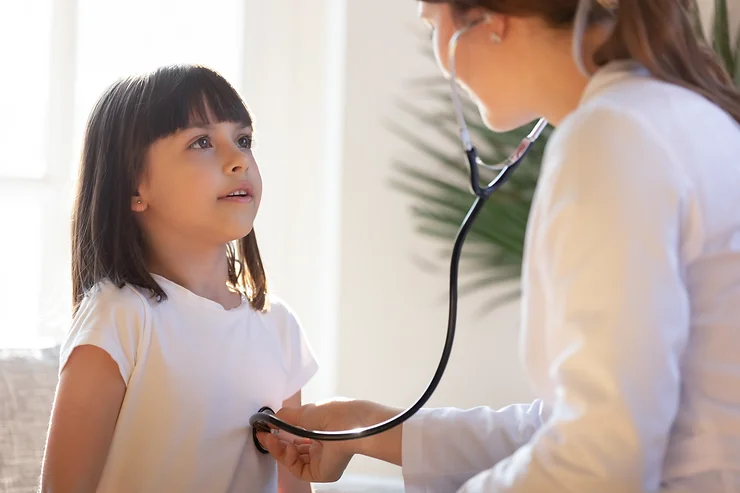
It’s scary for a parent if their child gets sick, or feels unwell. However, certain disorders and diseases present with mild symptoms, so are often overlooked, but can actually be causing more serious underlying health concerns. One such disorder is sleep apnea.
Read our blog to learn about the associated heart health risks for children who develop this sleep disorder.
Kids get sick. It's a normal part of growing up and becoming more resilient to day to day environmental risks and developing a stronger immune system. It’s scary for parents when it happens, but most of the time, it’s nothing to worry about.
However, certain disorders and diseases present with mild symptoms, but can actually be causing some more serious underlying health issues. So, when should you be concerned if your child is experiencing mild symptoms but not getting any better?
The prevalence of pediatric obstructive sleep apnea syndrome (OSAS) is approximately 3% in children, and between 3% and 12% of children snore.
Up to 25% of children with pediatric OSA have reduced concentration, depression, hyperactivity, irritability, and symptoms that mimic attention-deficit / hyperactivity disorder (ADHD) as well as reduced physical, mental and academic performance.
The majority of these children have mild symptoms, and many outgrow the condition. However, in some cases if not managed and treated correctly, sleep apnea can lead to cardiovascular problems in later life.
Hormones and The Heart
Sleep apnea is a chronic disease that involves the repeated collapse of the upper airway during sleep (learn more about sleep apnea here). Research has found it is so significant that it is considered to be more prevalent than both asthma and adult diabetes and some public health advocates think it may be as big a public health hazard as smoking.
Left untreated, moderate and severe OSA can more than double your risk of dying from heart disease.
For children, sleep apnea can be very damaging to their health as they are still in the process of growing and developing. Their hearts and lungs are smaller and can be more easily damaged by external factors. Sleep also has important effects on growth, especially in early infancy. A hormone secreted by the pituitary gland called growth hormone (or "human growth hormone") is released throughout the day. But for kids, the most intense period of release is shortly after the beginning of deep sleep. If their sleep is affected, as it is with sleep apnea, this can lead to stunted or slowed growth which can in turn cause underdeveloped bones and muscles (including the heart).
High Blood Pressure and The Heart
A recent study in CHEST explored some of the causes of cardiovascular risk in children with OSA. In one of the studies, 446 children who had attended a hypertension clinic were reviewed, and it was found that 52% of those had OSA, and demonstrated severe high blood pressure as a result. The results suggest a causal relationship between high blood pressure and OSA.
Many scientists believe that the lack of oxygen that occurs during sleep apnea when a child stops breathing causes the body to release epinephrine (also called adrenaline), a stress hormone. When this happens over and over, adrenaline levels remain high, leading to hypertension (high blood pressure). Also, by disrupting how the body takes in oxygen, the brain struggles to control how blood flows in the arteries and the brain itself which can put undue stress on the heart and lead it to become enlarged. An enlarged heart does not pump as well and as a result, the heart and child’s body will get even less oxygen.
Pediatric OSA is a treatable disorder
If you think your child may have OSA, various treatment options are available. Treatment often includes the removal of tonsils and adenoids as a first-line therapy. The use of CPAP (Continuous Positive Airway Pressure), a typical adult therapy, is less common in pediatric OSA, but a plausible alternative in many cases. One study showed that continuous positive airway pressure (CPAP) was associated with blood pressure reduction in children with OSA.
If you are looking for advice or to speak to a board-certified sleep doctor, Ognomy can help. Remember that it is important to diagnose and treat sleep apnea in children before the onset of any related health complications in their later years.
Contact us for more information or register as a new patient with us to book a video appointment today.
